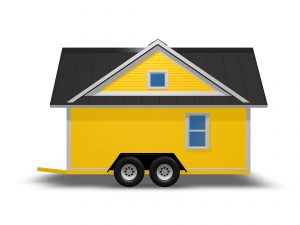 More and more young adults are shattering misconceptions about modular and manufactured housing as many go with these options to secure housing in an otherwise unaffordable market.
More and more young adults are shattering misconceptions about modular and manufactured housing as many go with these options to secure housing in an otherwise unaffordable market.
This information comes by way of a new survey from Vanderbilt Mortgage and Finance, Inc, a national financial intuition focusing on manufactured, modular, and mobile homes. The survey, conducted by the company's consumer insights team using Statista data, investigated how potential homebuyers perceive off-site built housing, as well as what they're looking for in their homes.
Overall, Vanderbilt Mortgage and Finance found that Gen Zers (representing people born between 1997-2010, or 20.6% of the American population) now see manufactured housing as a viable way to get into the market compared to sentiments held by previous generations due to the customizable options and varied price points it offers.
Using this new data, Vanderbilt Mortgage intends to use these insights to meet the needs of today’s newest generation of buyers.
Looking deeper at the data, nearly three-quarters of Gen Zer’s surveyed reported a positive impression of off-site built housing indicating that the “outdated, and often incorrect, perceptions of off-site built housing are quickly changing as younger generations discover the quality and affordability of off-site built homes.”
The data also found that the price of a home (now an average $433,070 as reported by HouseCanary) is a huge factor in this shift in perceptions about manufactured housing. When compared to the $433,000 a new home goes for, manufactured housing can offer a home for around $130,000.
“Overall, Gen-Zers see the many possibilities for off-site built homes with customizable options at attainable price-points,” Vanderbilt Mortgage wrote in their report on the findingse. “Modern, stylish and energy-efficient home design options also contributed to the positive overall impression. Vanderbilt Mortgage's insights team works hand-in-hand with a design team that sifts through the data to suggest changes in home design that reflect the needs of future and current homeowners.”
"We believe that our homes are an ideal way for younger generations to achieve the American dream of homeownership without sacrificing comfort or style," said Vanderbilt Mortgage Director of Customer Experience Jason Langston. "Today's off-site built homes have a modern aesthetic, are energy-efficient, and provide an attainable path to homeownership."
Sustainability, affordability, and “green” manufacturing processes are also top concerns for Gen Z as they want to invest in something environmentally friendly. For example, Vanderbilt Mortgage's survey discovered that they prefer renewable materials and value sustainability. In fact, the environmental reputation of a builder is more important than their business ratings or customer service to the majority of Gen-Z. Construction quality and home prices ranked higher than the environmental reputation, however.
Acting on this research, Vanderbilt Mortgage has also participated in an initiative to plant 2.33 million native species trees in forests through a partnership with the Arbor Day Foundation.

 theMReport.com Your trusted source for mortgage banking news
theMReport.com Your trusted source for mortgage banking news








